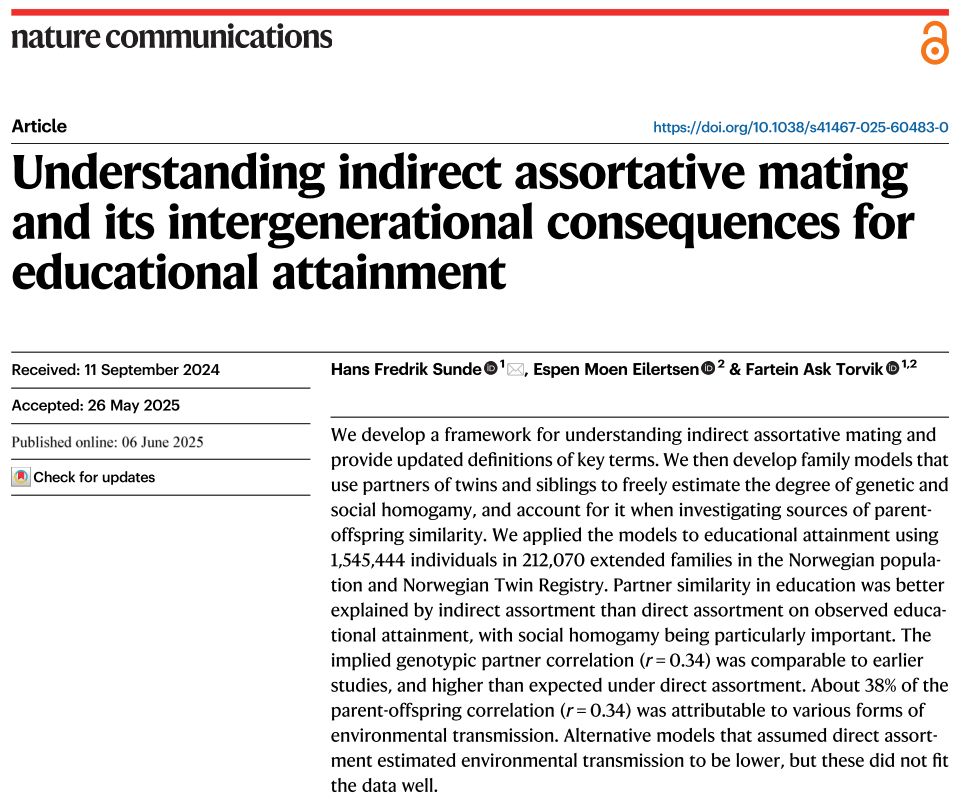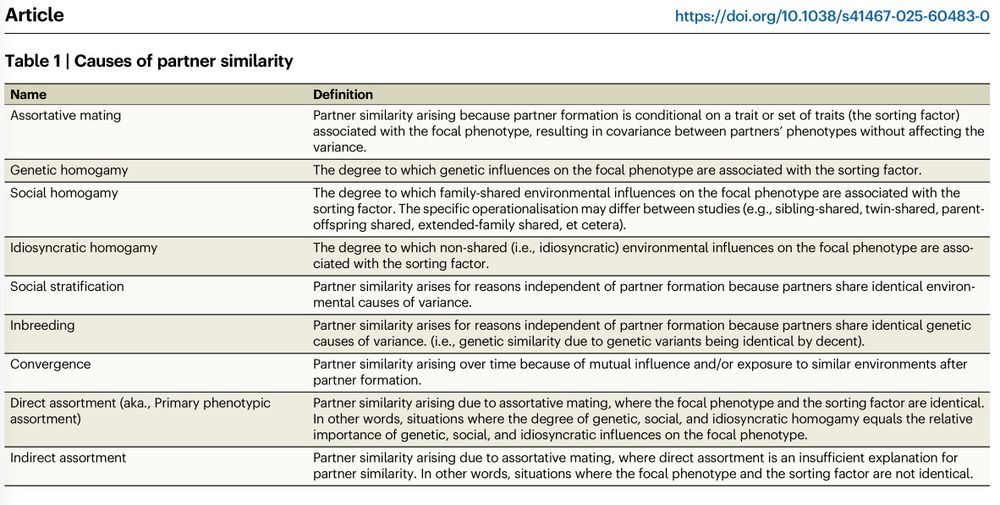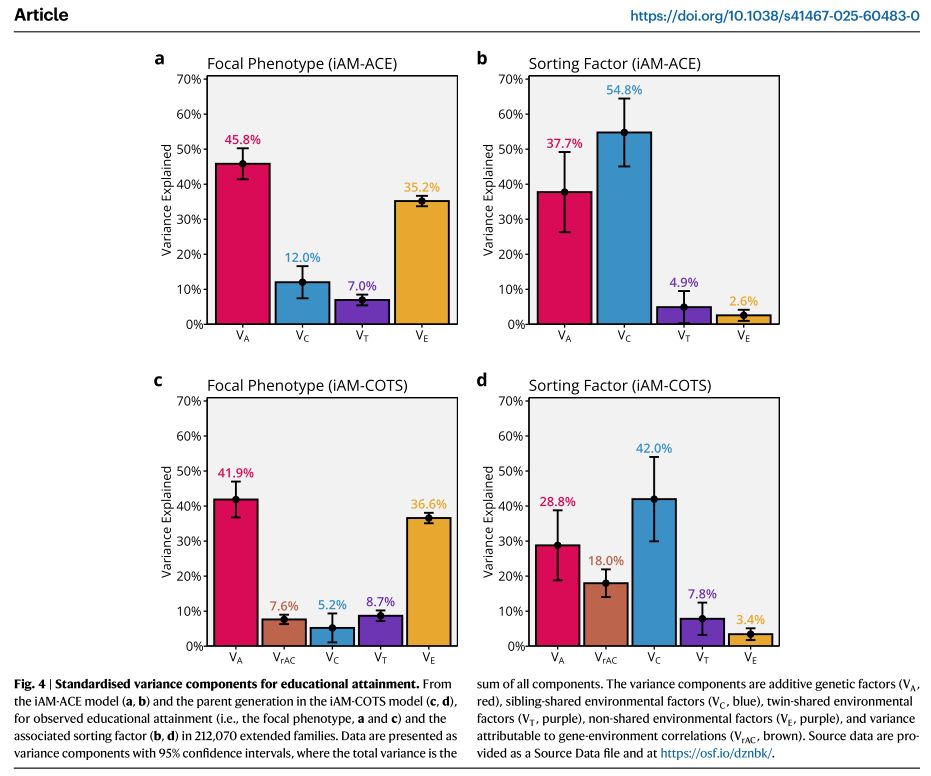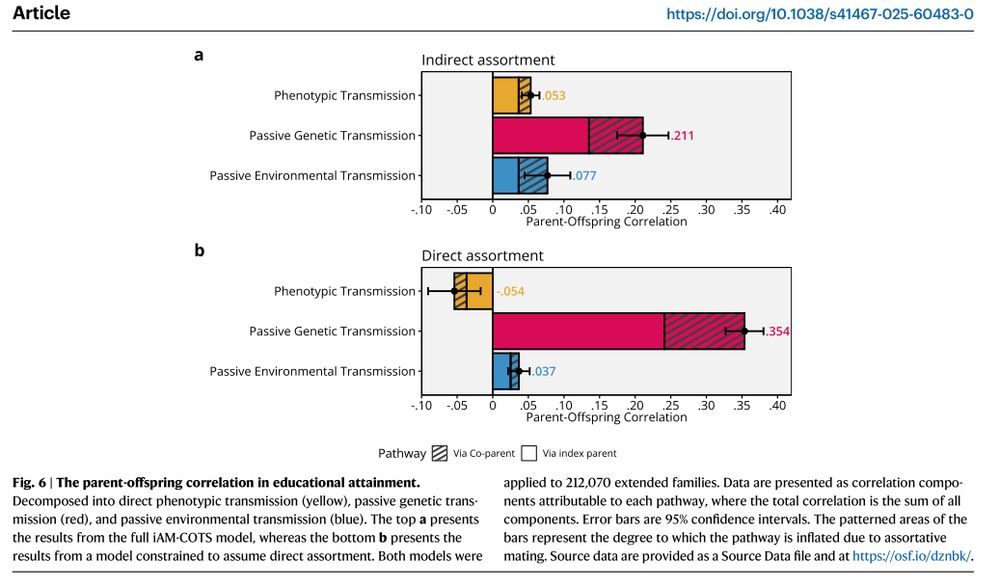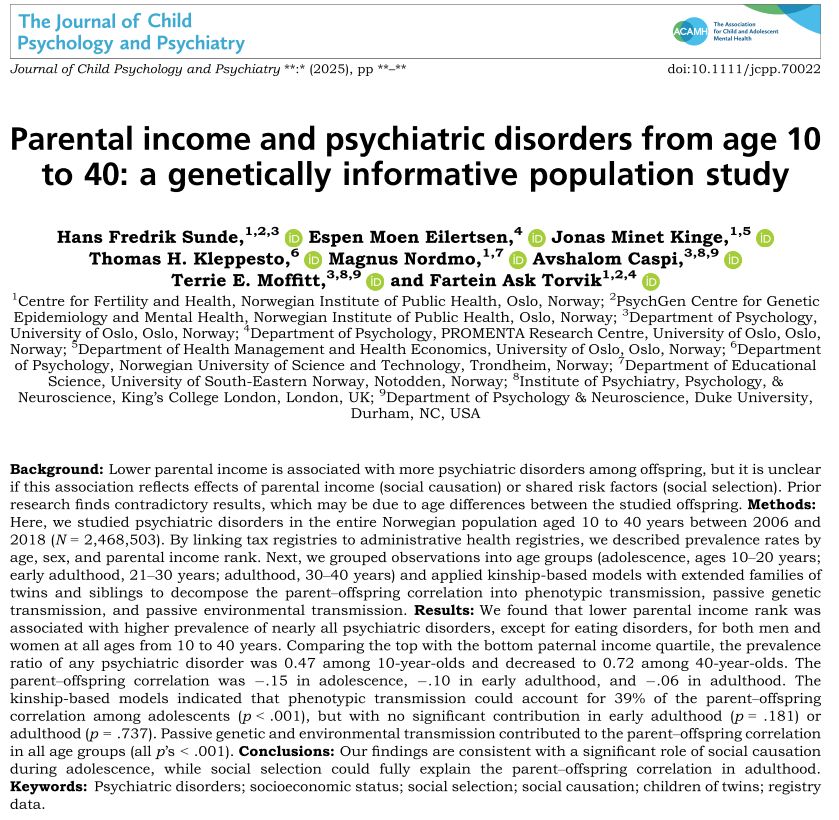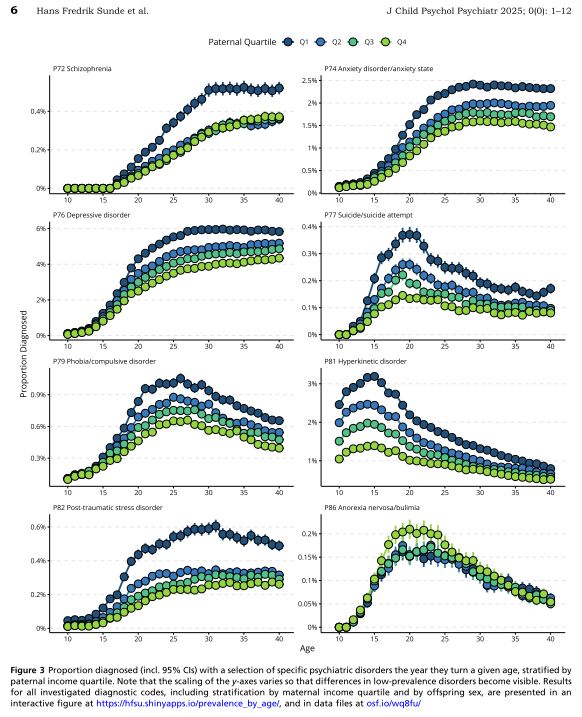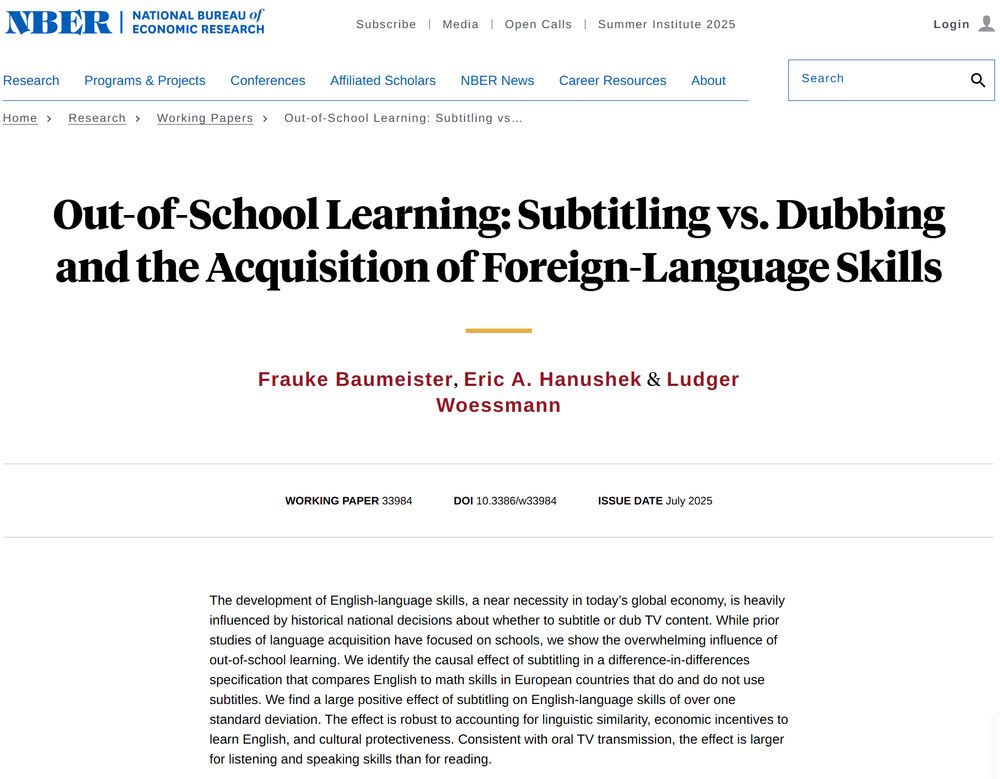Hans Fredrik Sunde
@hfsunde.bsky.social
560 followers
180 following
120 posts
Researcher at the Centre for Fertility and Health (NIPH) in Oslo. Interested in assortative mating, behavioral genetics, and bias in research.
www.hansfredriksunde.com
Posts
Media
Videos
Starter Packs
Pinned
Reposted by Hans Fredrik Sunde
Reposted by Hans Fredrik Sunde
Reposted by Hans Fredrik Sunde
Reposted by Hans Fredrik Sunde
Reposted by Hans Fredrik Sunde
Reposted by Hans Fredrik Sunde
Reposted by Hans Fredrik Sunde
Hans Fredrik Sunde
@hfsunde.bsky.social
· Jul 15
Reposted by Hans Fredrik Sunde
Reposted by Hans Fredrik Sunde
Reposted by Hans Fredrik Sunde
Tabea Schoeler
@tabeasch.bsky.social
· Jul 8

Design and model choices shape inference of age-varying genetic effects on complex traits
Understanding how genetic influences on complex traits change with age is a fundamental question in genetic epidemiology. Both cross-sectional (between-subject) and longitudinal (within-subject) appro...
shorturl.at
Reposted by Hans Fredrik Sunde
Reposted by Hans Fredrik Sunde

